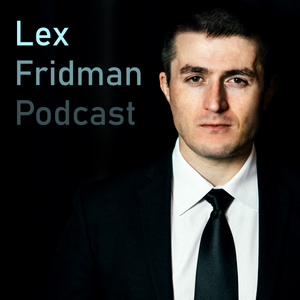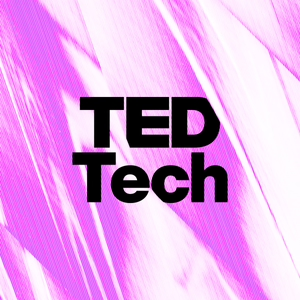
Attitude is Everything
09/16/22 • 42 min
Marcia McCallum is back for another episode of “Science in the Mall, Y’all”, but this time she is joined by her supervisor David Medina. David is the Upstream Processing Manager at XBiotech, and Marcia works under him in Upstream Processing. XBiotech manufactures and develops medication from human monoclonal antibodies – and Marcia and David kick off their episode by explaining what that actually means. They talk about what the “upstream” side of the operations entails, from development to cultivating and mass producing cell culture with the antibody cells before it can go to “downstream” for purification and synthesis. They share the dynamic in their lab and what a day-in-the-life is like for Upstream Processing teams at XBiotech as they work with each other and the cell cultures. They even have some funny stories to tell about epic fails they turned into wins.
As a hiring manager, David talks about the kinds of attributes he looks for when he’s recruiting. While skills and knowledge are important, a good attitude, work ethic, and eagerness to learn are the most important things that David looks for when he’s interviewing prospective candidates. David and Marcia discuss their unconventional educational backgrounds and how they combined those things with their hobbies, attitudes, and humility to secure their positions at XBiotech and thrive in their fields. Their inspiring journeys reveal how the right mindset and drive is essential to success, and David and Marcia give us an honest insight into the interview process and the hiring process, from the perspective of being hired and being the person doing the hiring. Marcia and David’s experiences and stories show that you can have a successful career in bioscience regardless of the degree that you hold provided you possess the work ethic, drive, and passion for the work. They talk about how they learn everyday in their job even though they are not in an explicitly academic setting, what students can do to augment their educational experiences to get hands-on skills, and why each employees’ character traits are crucial to a successful lab team. This episode is full of interesting anecdotes and great advice for anyone considering pursuing a career in the biosciences.
Hosted on Acast. See acast.com/privacy for more information.
Marcia McCallum is back for another episode of “Science in the Mall, Y’all”, but this time she is joined by her supervisor David Medina. David is the Upstream Processing Manager at XBiotech, and Marcia works under him in Upstream Processing. XBiotech manufactures and develops medication from human monoclonal antibodies – and Marcia and David kick off their episode by explaining what that actually means. They talk about what the “upstream” side of the operations entails, from development to cultivating and mass producing cell culture with the antibody cells before it can go to “downstream” for purification and synthesis. They share the dynamic in their lab and what a day-in-the-life is like for Upstream Processing teams at XBiotech as they work with each other and the cell cultures. They even have some funny stories to tell about epic fails they turned into wins.
As a hiring manager, David talks about the kinds of attributes he looks for when he’s recruiting. While skills and knowledge are important, a good attitude, work ethic, and eagerness to learn are the most important things that David looks for when he’s interviewing prospective candidates. David and Marcia discuss their unconventional educational backgrounds and how they combined those things with their hobbies, attitudes, and humility to secure their positions at XBiotech and thrive in their fields. Their inspiring journeys reveal how the right mindset and drive is essential to success, and David and Marcia give us an honest insight into the interview process and the hiring process, from the perspective of being hired and being the person doing the hiring. Marcia and David’s experiences and stories show that you can have a successful career in bioscience regardless of the degree that you hold provided you possess the work ethic, drive, and passion for the work. They talk about how they learn everyday in their job even though they are not in an explicitly academic setting, what students can do to augment their educational experiences to get hands-on skills, and why each employees’ character traits are crucial to a successful lab team. This episode is full of interesting anecdotes and great advice for anyone considering pursuing a career in the biosciences.
Hosted on Acast. See acast.com/privacy for more information.
Previous Episode

Shining a Light on Hidden Bioscience Professions
In Part 2 of this conversation between Mauricio Tellez and Dr. Rodney Rohde, we explore how the COVID-19 pandemic has affected the Clinical Laboratory Science field. Dr. Rohde explains the double-edged sword of the pandemic shining a light on the profession and increasing the general public’s awareness of it, while also adding a lot of stress and burnout due to the increased need for CLS professionals.
Dr. Rohde and Mauricio express the need for more folks to take the CLS career path, whether they are working in a hospital setting or pursuing a research-oriented role, and explain the job opportunities that exist for those who work in CLS and want to continue to grow and learn beyond an Associate’s or Bachelor’s degree and CLS Credential.
Mauricio demystifies the CLS program and shares stories about how his unique skills and personality traits as an individual combine with his passion for science to make him perfect for his job. He gets into the nitty-gritty of his day-to-day on the job, explaining how his time as an intern at ABI helped to set him up for success in the CLS Program and his current job. Part of this included exposure to instruments and processes, but part of this was also about how he was able to understand laboratory concepts such as quality control that can only be learned through hands-on activities like those that he was able to do at ABI.
Today Mauricio is a Clinical Laboratory Scientist in a medical setting, helping to identify if patients may have leukemia lymphoma, monitoring HIV in patients, and helping to detect mutations in patients’ hemoglobin. These kinds of detailed laboratory results and analyses help to determine critical components of the patients’ care, and 70% of medical decisions are made off of lab tests like the ones that Mauricio runs and interprets.
Mauricio and Dr. Rohde close out the conversation by explaining the job outlook for CLS professionals and encouraging students who are interested in science and want to help others, but maybe don’t feel thrilled about sitting at the bedside of ill patients, to explore the career option. They share their advice for students who are interested in science, and advice for mentors of students who are starting to consider their future career plans.
Learn more about TX State’s CLS Program.
Learn more about Dr. Rohde.
Learn more about ACC Bioscience Incubator.
This is a founding_media podcast.
Hosted on Acast. See acast.com/privacy for more information.
Next Episode

Troubleshooting, Hands-On Experience, and Vegetable Beef Soup
Former interns Mike Delisi and Amanda Brown join the podcast in conversation together because they interned at ABI at the same time! They share their unique life experiences that led them to Austin Community College, and explain how they came across the ACC Bioscience Incubator during their time studying bioscience.
One experience that both Mike and Amanda share is that ABI gave them critical hands-on experience that helped them get their first jobs after graduation. This exposure to a laboratory environment and the instruments and processes within that environment lent them the confidence they needed to try new things outside of the classroom in professional settings. Critical thinking, problem-solving, and being comfortable making mistakes are not skills that are easily acquired in a classroom, and both former interns explain how ABI internships helped them hone these important attributes which gave them an edge in the job market.
In addition to soft skills, ABI exposed Mike to the ACTA machine, an instrument that he uses today in his role in Downstream Processing at XBiotech. He and Amanda explain what an ACTA Machine is, and how it is used in the process of manufacturing medication at XBiotech. This hands-on experience earned during their internships at ABI plus the soft skills gained there combined with their Associate’s degrees helped secure their positions after graduation. Mike and Amanda point out that many of their colleagues have a Bachelor’s degree, but because of their experiences at ABI they were able to avoid possessing this “requirement” and instead compensate with real-life experience in laboratories.
We close out part 1 with a conversation about how to secure job interviews after graduating, especially with an Associate’s degree, and Mike and Amanda share their tips for creating a resume that the bioscience companies in town can’t say no to.
Learn more about XBiotech.
Learn more about ACC Bioscience Incubator.
This is a founding_media podcast.
Hosted on Acast. See acast.com/privacy for more information.
If you like this episode you’ll love
Episode Comments
Generate a badge
Get a badge for your website that links back to this episode
<a href="https://goodpods.com/podcasts/science-in-the-mall-yall-58490/attitude-is-everything-23809536"> <img src="https://storage.googleapis.com/goodpods-images-bucket/badges/generic-badge-1.svg" alt="listen to attitude is everything on goodpods" style="width: 225px" /> </a>
Copy




